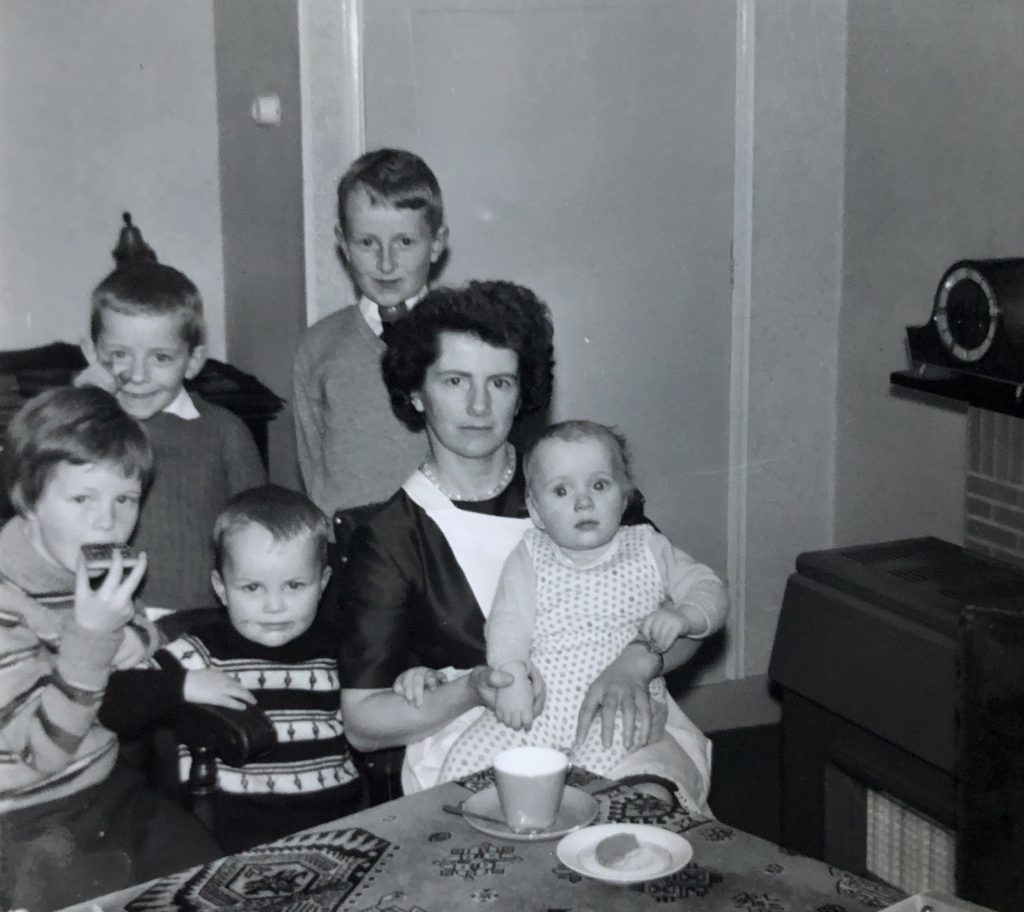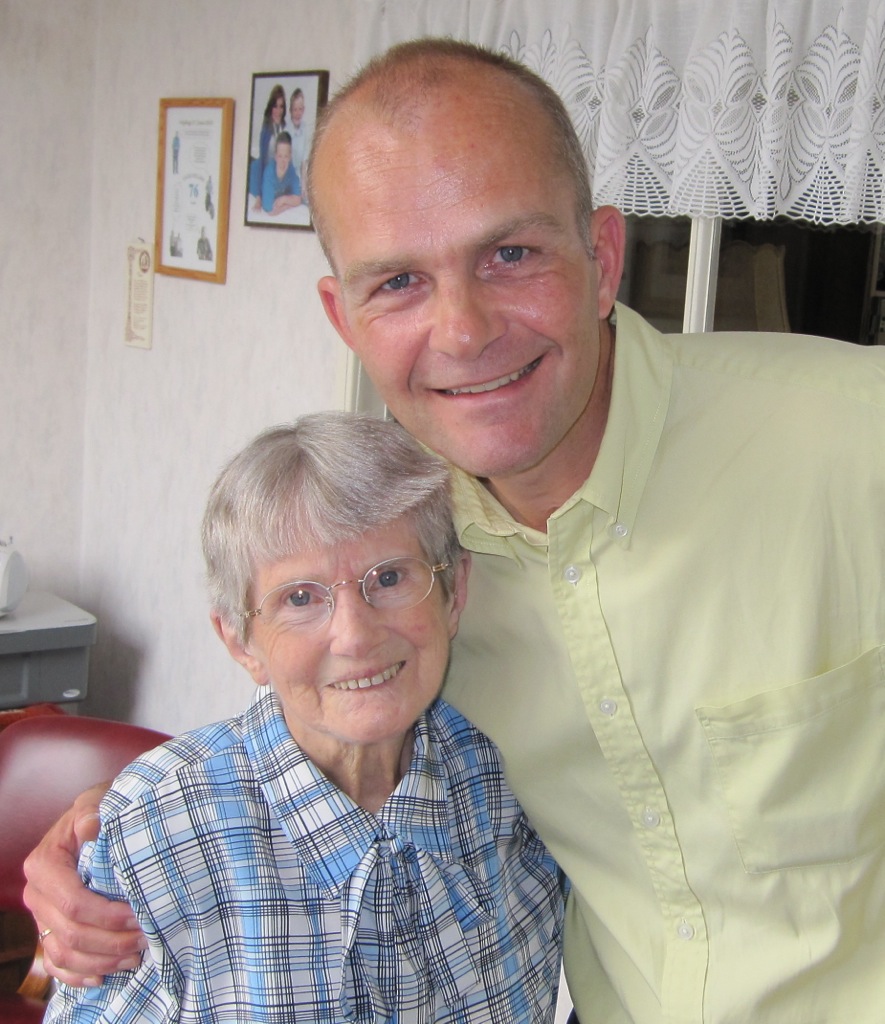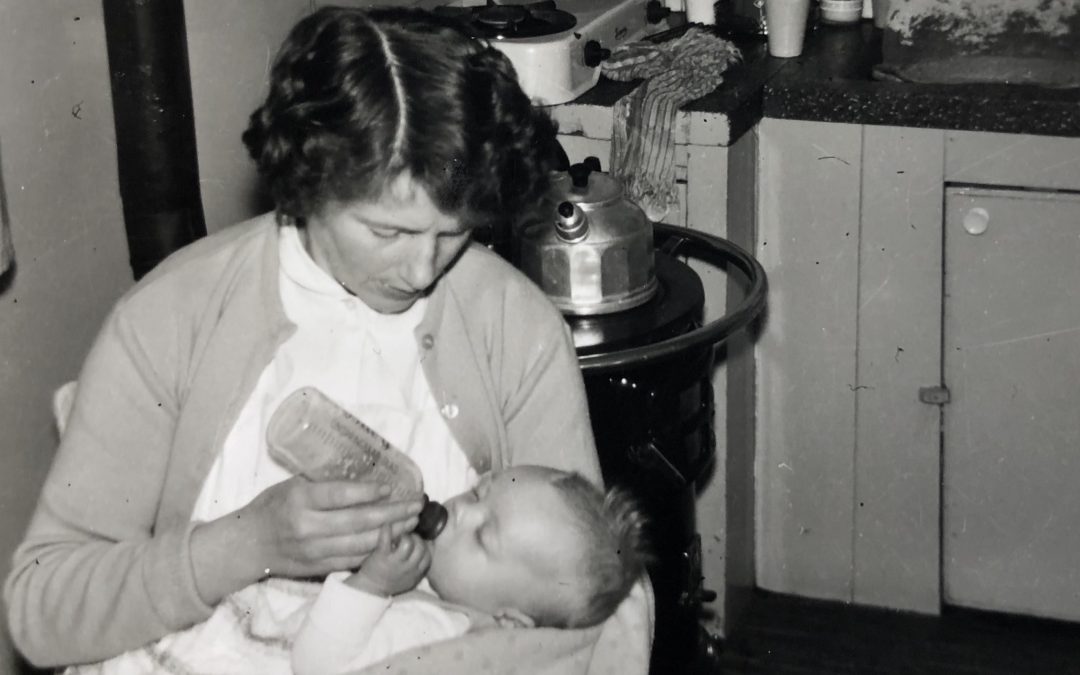“If you can handle your parents, you can handle life”
What’s gotten into you?
Last night there was an announcement of the new program ‘In the best families‘ by Coen Verbraak with the theme: ‘Mothers’. Coen Verbraak has already built up a reputation as an interviewer with his series in recent years. Conversations in which he invites the other to show how he or she relates to major or minor life themes in life. In other words, “What’s gotten into you?” As far as I am concerned, it is an art and skill to create an atmosphere that offers sufficient safety and involvement. To offer space to the ‘soul’ of the other, to be really present and visible, in what concerns you and in what you are willing to share.
The blueprint of your life
This new series is about the relationship between mother and child. A relationship that we are all familiar with in a way that is unique to every person and to every child. A mother who (in a normal and healthy pregnancy) has carried you under her heart for 9 months. The woman you entered into your first relationship with well before you were born. A relationship that has contributed much, and perhaps most of it, to the “blueprint” of your life. Much of the way you relate to life now, with relationships, with tensions, with your work, your partner and your children, is connected with this blueprint that was created at the start of your life. A start that did not start at birth, but at conception.
The relationship with your mother as a theme in the counseling and therapy
This blueprint, this first person with whom you have connected yourself in this life, is an important theme in therapy and guidance that is worked with. A theme that also attracts a lot of resistance from many clients. Because we not only look at the pleasant memories and experiences we have had with our parents and / or caregivers, but also at the dark sides. And maybe it is my personal experience, but I have the impression that it is more difficult to look at the dark side of our mothers than the dark side of our fathers. Many clients struggle with this often unconscious loyalty to their parents and especially their mother.
Loyalty conflict
As I said, the relationship with the mother is an important theme in the counseling and / or therapy. I remember my own experiences with therapy in which I struggled for years with this, then still unconscious, loyalty to my parents and especially my mother. A loyalty that was visible on the outside in care and dedication, but felt on the inside as a restrained tension. A tension that I had built up in my life with restrained anger, disappointment, rejection and sadness. Tension that, when it remains stored in the body, is expressed through incomprehensible complaints and behavior.
Learn to see one’s own struggle in the context of the struggle of our own mothers
My mother was a caring and sweet mother who tried to give us everything she was able to do for us. But it was precisely that ‘ability’ that had been seriously affected by her personal past and her experiences with anger, disappointment, rejection and grief. She was present in the family outwardly as a mother, but inside was ‘occupied’. Outwardly a cheerful and committed woman, wife and mother, but inwardly withdrawn with an ‘weighted’ mind, through unconscious and unexpressed ‘grief’. As a child she lost two of her sisters. Death was visibly present in her family home, but it was not discussed and the grief was not openly expressed. She herself had therefore also been raised by a mother who was ‘occupied’ by her past and her grief.

The ‘Still face experiment’
In the following video you can see the influence of the mother’s attitude on her child. The fragment is also in the documentary film InUtero A documentary that I ask all my clients I work with to watch because it gives an image and insight into the ‘blueprint’ I mentioned earlier. The fragment shown below is the ‘Still face experiment’ which is very confronting to see what it does to a child when no real contact is possible with the mother (or other caregiver).
Pre-verbal experiences stored in our unconscious archives and databases
So our mothers are the most important relationship we enter into in our lives. A relationship that becomes the basis for all other relationships in our lives. That is why we are often confronted with it in counseling and therapy in the most warming and loving experiences and in the most unpleasant, hindering and painful experiences. Experiences that we are not always aware of, because a large part of these experiences are stored in our subconscious archives and databases. They are the so-called pre-verbal experiences that are recorded when our brain is not yet fully developed.
“I don’t understand“
Early experiences of our emotional and physical body that can be touched and triggered in the here and now. Experiences that we cannot explain with our rational brain because the experiences are linked to our emotional brain and our physical body. I often hear clients say: “Yes, but ….. I don’t understand”. And that is true. They are experiences that cannot be placed with the understanding and our ratio. And because many clients have learned to control their lives with their heads, the path of the heart, of the body and the emotions is a tricky route that they are not comfortable with.
How is your relationship with your mother?
How was or is the relationship with your mother? Do you also find it so difficult to bring out the dark sides of your parents and especially of your mother? Are you aware of your earliest experiences that continue to function as a kind of blueprint in the way you now live in life and enter into relationships? All questions that you cannot escape if you allow yourself to really meet and face yourself. Our parents and especially our mothers, when we are so dependent as children, are the ‘guides’ who are so important in our lives. It takes courage, a free will and an open heart to face your mother (your parents, educators) and thus yourself to discover where you are at this moment in your life.
Psychosynthesis therapy
My mother passed away in 2011. In the last years of her life, our bond has gotten better as the bond with myself got better. In those last years I took part in a psychosynthesis therapy group myself. How often she passed by there in the sessions in which I was working with myself. I did not find it easy to confront both my mother and my father with my own feelings of sadness and rejection. I found it difficult to break free and go my own way. I remember my therapist saying, “If you can handle your parents, you can handle life” and “In therapy, you learn to go through your last name with your first name.” It confirms the enormous influence of the family, the parents and especially the mother on your life

